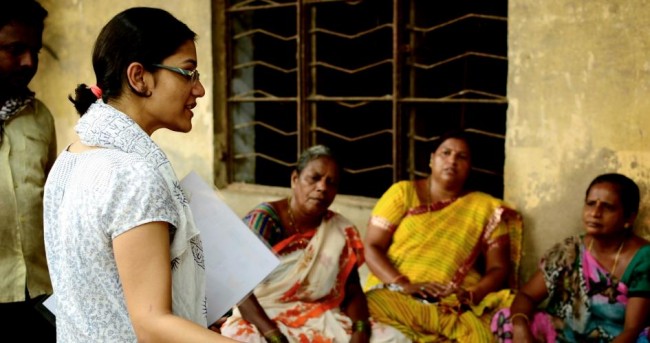New Delhi, June 25 (IANS) A new initiative between Tata Trusts and the University of Chicago will collaborate in ideation and solution-seeking to complex developmental challenges in crucial areas like sanitation, energy and the environment, a US don of Indian origin who heads the venture said.
“We are planning a three-year pilot of a new integrated approach to development work. We will work in a few verticals to start– health, water and sanitation and energy and the environment,” Anup Malani, faculty director of the newly-created Tata Centre for Development at the University of Chicago (UChicago), told IANS in an interview.
The health vertical will examine healthcare access through insurance with projects in Karnataka and Andra Pradesh. The water and sanitation vertical will begin a major project on decentralised irrigation with water tanks in Telangana. The energy and environment vertical will examine projects to improve reporting of emissions by plants in Gujurat and Maharashtra, to provide rural electrical power via solar microgrids in Bihar, and to encourage individuals to pay for better electricity supply in Bihar.
“We will also work on ideation — the generation of new solutions to development challenges — through two additional projects. We will support an Urban Challenge in Delhi that asks NGOs and government officials to propose new ways to tackle air pollution,” Malani, the Lee and Brena Freeman Professor at the UChicago Law School and Professor at the Pritzker School of Medicine, explained.
“We will also support a partnership between the UChicago’s International Innovation Corps (IIC) and OpenIDEO, a division of the design consulting firm IDEO, to use OpenIDEO internet based platform to crowdsource solutions to, for example, urban sanitation problems, and then to pilot those solutions using IIC teams in collaboration with municipal governments,” he added.
Malani, the co-founder of the IIC and principal investigator on the Indian Health Insurance Experiment, a 12,000-household study of health insurance in Karnataka, also elaborated on how the initiative will work in the southern state.
“First, the TCD will take on a large randomised control trial to examine the benefits and costs of expanding the government’s largest secondary hospital care insurance programme, the Rastriya Swasthya Bima Yojana (RSBY), to Above-Poverty-Line (APL) households, a group not currently eligible for RSBY and underserved by commercial insurers.
“Second, it will send an IIC team to work with the Suvarna Arogya Suraksha Trust (SAST), which operates both RSBY and the Vajypayee Arogyashree (a tertiary care hospital insurance scheme) to help improve the implementation of those schemes,” Malani said.
How did the TCD, which will be based at the UChicago Centre in New Delhi, come about?
“The IIC programme was already operating in India. However, we wanted to verify the government projects IIC helps implement. At the same time we wanted to ensure that impact evaluations UChicago was conducting in India had an impact on policy and implementation.
“To address both problems, we proposed the TCD, which combines research (impact evaluation) and implementation (mainly through IIC). In addition, we folded in training component for government officials and NGO leaders because we felt they were the primary change agents in India and could best help scale impactful interventions,” Malani said.
A proposal was then made to Tata Trusts, which were already working on two IIC projects.





